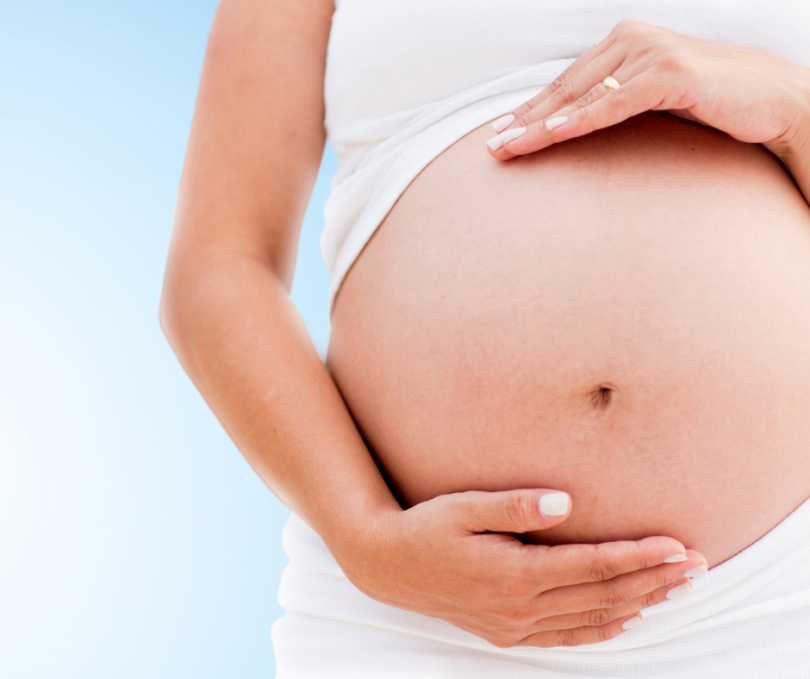You are pregnant? Congratulations!
I assume you have loads of questions right now? There is a huge amount of pregnancy advice out there and it can seem a little overwhelming at times. Here, I have gathered some tips that I have found helpful not only from professional expertise but also from personal experience 😊
After all, the way we live and eat before and during pregnancy has a lasting impact. Parenthood doesn’t just start with changing diapers, but long before birth. Remember that you are the only person in the world who can offer your baby the best environment for its development. So take good care of yourself and your unborn child.
Make an appointment with your healthcare provider
As soon as you are pregnant (and ideally even before, as soon as you want to have children), it is time for an appointment with your doctor. You will be given important information about your current medication and vaccinations. You should also tell your doctor about any over-the-counter medication you are using, as even commonly used painkillers such as ibuprofen can increase the risk of miscarriage. Your doctor will suggest suitable alternatives. In addition to medication, dietary supplements or “natural” remedies may also need to be scrutinized. You should even avoid some essential oils during your pregnancy, as they can stimulate contractions. These include camphor, cloves, ginger, cinnamon, clary sage and verbena.
Check-ups during pregnancy are an essential pillar of preventive healthcare for you and your baby. They ensure that potential problems are detected at an early stage. Therefore, go to your regular check-ups as recommended by your doctor. By the way: It doesn’t always have to be your gynecologist, many check-ups are also offered by midwives.
In addition to your regular check-ups, see your doctor if you experience pain of any kind, severe cramping, contractions every 20 minutes, vaginal bleeding or fluid leakage, fainting, palpitations, constant nausea and vomiting, edema, or significantly decreased activity of your baby.
The other doctor I recommend is your dentist. The saying goes that every pregnancy costs a tooth. Thanks to modern dental care, this is no longer true. However, pregnancy is a time in your life when dental hygiene is important and a check-up with your dentist is recommended.
Avoid toxins
Of course, you know that tobacco, alcohol and illegal drugs can pose a serious health risk to your future child. Make avoiding them a priority. However, if you find that despite your best intentions you can’t stop smoking, drinking or taking drugs, it’s really important to talk to your doctor. A doctor can advise and support you and recommend a program to help you quit.
What about other toxins? Did you know that solvents such as lacquer thinner and nail polish remover can also be harmful? The contents of the cleaning products you use at home are also worth a second look. During pregnancy, make sure you limit your exposure to harmful substances to a minimum.
Hygiene
There are a number of infections that you should avoid during pregnancy as they can increase the risk of pregnancy complications (e.g. group B streptococcus, cytomegaly and chickenpox). Hand hygiene with frequent and thorough hand washing is a good way to protect yourself and your baby from these infections. I recommend taking hand sanitizer with you when you are out and about.
Another infection you should avoid is toxoplasmosis. This is a disease caused by a parasite that cats can carry. Let your partner take care of the litter box during your pregnancy. As cats can be around without you realizing it, it is advisable to wear gloves when working in the garden (where cats may have been).
Do not lift heavy objects
You may have heard that pregnant women are advised not to lift heavy objects. This is mainly because it puts even more stress on the already strained pelvic floor and back – increasing the risk of back problems, pelvic floor weakness and incontinence in the long term. As a guideline, pregnant women should not regularly lift loads of more than five kilograms or occasionally lift loads of more than ten kilograms. If you hold your older child in your arms but feel comfortable doing so, then that’s not a problem. Simply make sure to lift your child in a back-friendly way. It is important to listen to your own body. Take any discomfort seriously.
Keep an eye on your weight
You will gain a lot of weight during your pregnancy. It is best to stay within a healthy range. Too little weight gain can lead to a low birth weight for your baby, which in turn is one of the main causes of developmental problems. Too much weight can increase the risk of gestational diabetes. In addition to that, children born to overweight mothers often have health problems themselves.
So what is a healthy weight gain during pregnancy? In the first trimester you will usually only gain a small amount of weight. Some women may even lose weight in the first trimester due to morning sickness. Noticeable weight gain often only begins around your second trimester.
Normal weight gain is between five and 18 kilograms, depending on your individual starting situation. In previously normal-weight pregnant women, the average is between 11 and 16 kilograms. Overweight women should not gain more than five to nine kilograms.
If you carry more than one baby, expect to gain more weight. After all, more blood, more amniotic fluid, more placental tissue is needed. ❤️ Women who are expecting twins normally have a weight gain of around 15.5 to 20 kilograms. If a woman is pregnant with triplets, gynecologists and midwives expect a pregnancy weight of around 20.5-23 kilograms more.
During your check-ups, your doctor will monitor your weight, but I recommend checking it yourself about once a week so that you know if you are on the right track. This will help you spot any potential problems quickly. For example: A very rapid weight gain of one kilo or more per week can be an indication of water retention, known as edema. In some cases, pronounced water retention can be a warning sign of pre-eclampsia (also known as gestosis or pregnancy-induced hypertension, formerly known as pregnancy poisoning) or gestational diabetes. It is therefore essential that you speak to your midwife or gynecologist if you are gaining weight very quickly.
Exercise
Physical activity during pregnancy is good for both mother and child. Exercise and sport can prevent back pain and circulatory problems and even alleviate morning sickness during pregnancy. Pregnant women who exercise regularly are less likely to have high blood pressure or gestational diabetes. Regular exercise helps to prevent excessive weight gain. Ultimately, a certain level of basic fitness can also be beneficial for the strenuous birth process.
Physical activity doesn’t just mean sports, but also exercise in everyday life: walking more often, taking the stairs instead of the elevator, cycling to work. Pregnant women will want to avoid long periods of sitting or at least get up from time to time.
When it comes to sport, “moderate, aerobic activity” is considered advisable. As a rule of thumb, you still need to be able to have a good conversation during exercise and not be completely “out of breath”. Prolonged anaerobic exercise that leaves you out of breath, even to the point of overexertion, is obviously not the right thing to do at this time. High-impact and high-risk sports are not suitable during pregnancy either. Large differences in altitude are also not ideal. It is therefore better not to plan a diving vacation or a high-altitude trail for the next months.
If you have a high-risk pregnancy (increased risk of miscarriage, bleeding, premature labor, previous illnesses or health problems during pregnancy) it is best to talk to your health care provider to learn more about what you can and can’t do.
Nutrition
The most important motto for nutrition during pregnancy is “quality trumps quantity”. Contrary to popular belief, you don’t have to eat for two in terms of quantity (the additional energy requirement during pregnancy is not that high). However, you will need a lot of extra goodies such as vitamins and minerals. Eat a high-quality diet with healthy ingredients. To find out more, visit our article on nutrition in early pregnancy.
Shopping 😀
During pregnancy, you have a perfect excuse for a shopping trip! Of course, you’ll need maternity clothes anyway, the baby gear and so on, but what I really mean is comfortable, well-fitting bras and shoes (sorry girls, not those fancy, oh-so-fashionable ones) .
As your pregnancy progresses, you will find that your normal bra no longer fits properly. You’ll definitely need a bra that can support the extra weight. If you’re on a tight budget and don’t want to invest in large bras that you’ll only need for a few months during your pregnancy, why not look for a nice nursing bra that you can wear for the months after the birth?
What about shoes? While you may already know that your breasts will get bigger during your pregnancy, you probably don’t realize that you may also need bigger shoes. This is due to your weight gain combined with a shift in your center of gravity due to your growing belly. In addition, fluid retention at the end of your pregnancy can lead to swollen ankles. I strongly recommend investing in a pair of comfortable shoes that really fit. The best would be ones with an orthopedic footbed to prevent painful over-pronation or flattening of the feet.
By the way: If you are still hesitating to buy shoes half a size or even one size larger than before pregnancy, you should know that many women keep a larger shoe size even after giving birth.
Time for vacation 🌴
If you are expecting a new baby, your pregnancy is the perfect time for a vacation. More specifically, the middle stage of pregnancy (14 to 28 weeks) is perfect. This is when you are most likely no longer suffering from morning sickness and the risk of miscarriage and premature birth is very low. Nevertheless, ask your doctor before you make any travel plans 😊
If you are planning to fly, you should be aware of the airline’s guidelines for pregnant women. Since sitting still for several hours can increase the risk of thrombosis, I recommend drinking plenty of water to stay hydrated and getting up and walking around every half hour during air travel. Tip: If you get an aisle seat, you will have more space and can stand up more easily. The same advice applies to long car journeys – take regular breaks to stretch your legs. By the way: If you are driving, wear a three-point safety belt. Make sure that the shoulder belt runs over the shoulder, the collarbone and down over the chest, between the breasts and that the lap belt is worn as low as possible under the stomach and the baby.
Skin care
When you are pregnant, your skin is more sensitive to sunlight than usual. Use a sunscreen with an SPF of 30 or higher (many brands now offer formulas that are chemical free) and wear a hat and sunglasses.
Your belly must stretch a lot by the end of pregnancy and I recommend treating it regularly with good quality body oil to maintain skin elasticity and reduce stretch marks.
Prenatal vitamins
Keep using your fertility vitamins during the first trimester of your pregnancy. This will support you and your baby’s early developmental steps. Especially for the formation of your baby’s neural tube, which will become the brain and spinal cord, it is important that you are well supplied with essential nutrients such as folic acid right from the start.
After the first trimester, your need for essential nutrients will change. In addition to a comprehensive supply of essential vitamins and minerals, it is particularly important that your baby now receives sufficient material for the amazingly rapid development of the brain and eyes. We therefore recommend prenatal vitamins with high-quality omega-3 fatty acids and choline.
Both serve as building blocks for nerve cells and have been shown to be very important for brain and vision development. In addition, recent studies suggest that omega-3 fatty acids can minimize the risk of pregnancy complications such as pre-eclampsia (high blood pressure during pregnancy with increased protein excretion in the urine) and protect against both premature birth and low birth weight.
For choline, there is evidence that supplementing the mother’s diet with choline can have a protective effect on brain development, for example if a mother suffers an infection during pregnancy. Especially during the coronavirus or flue waves, I therefore advocate the choice of a prenatal supplementation with choline.







